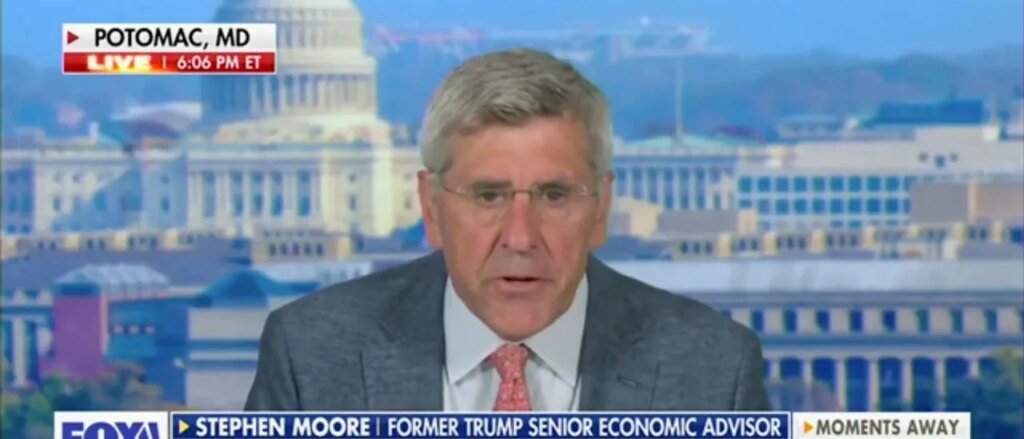Concerns Over National Industrial Policies in the U.S.
Economist Steve Moore expressed caution on Wednesday about the potential implementation of national industrial policies in the United States, suggesting it could lead to a stagnation similar to what Europe and Japan have experienced in recent decades.
On Tuesday, Commerce Secretary Howard Lutnick mentioned that defense contractors might be a target for increased government ownership, given that the federal government is already a significant customer. During his appearance on “The Bottom Line,” Moore described federal ownership of major companies as a significant shift toward corporate welfare, contrasting U.S. market-driven success with the slow growth seen in Europe.
“The concept of this national industrial policy has been tried in Europe and Japan over the last 30 years, and we have outperformed them significantly,” Moore told host Guy Benson. “Our stock market has increased 40 times, while theirs remains basically unchanged. We really don’t want to create a corporate welfare state in the U.S. We’ve succeeded while they’ve struggled—so why adopt a losing strategy?”
Benson asked Moore if Lutnick was overstepping by suggesting U.S. ownership of defense contractors, to which Moore responded that the idea of the federal government investing in major companies would be misguided. He expressed doubt about the wisdom of this approach.
Moore also remarked, “I hope for Lutnick’s sake that this isn’t a serious plan. The idea of the government taking ownership of companies like Boeing and others in the military-industrial complex is frankly reckless. I think pursuing that path would be foolish.”
In a related development, President Donald Trump moved to gain a 10% stake in U.S. chipmaker Intel as part of a strategy to bolster industries deemed essential for national security. The White House characterized this as a necessary action for supply chain security, countering any criticism that it might distort the market or complicate future management of private companies.
Through this transaction, the federal government plans to convert $8.9 billion in funding from chips and science grants into shares of Intel, thereby making it the company’s largest shareholder. Intel’s stock, however, has faced challenges and fluctuated as the company attempts to compete globally.







